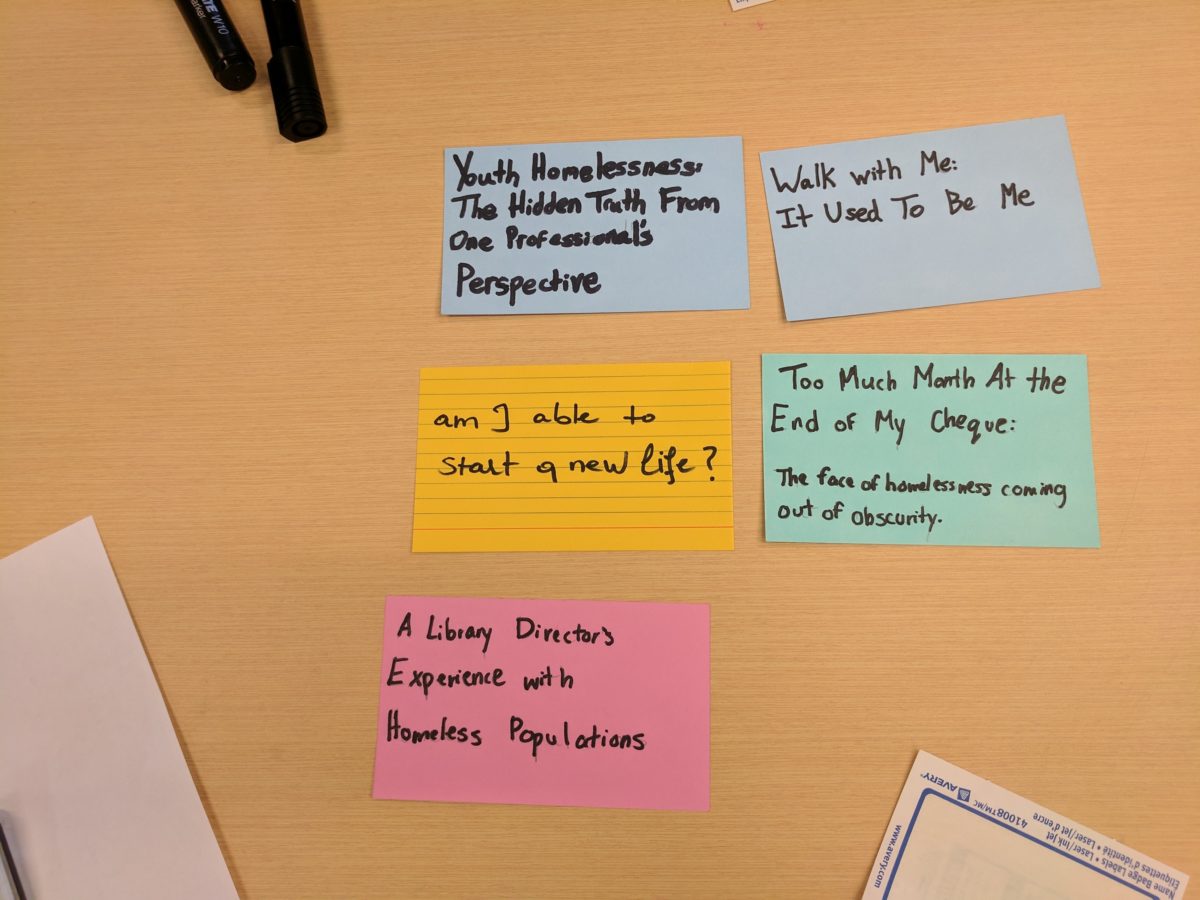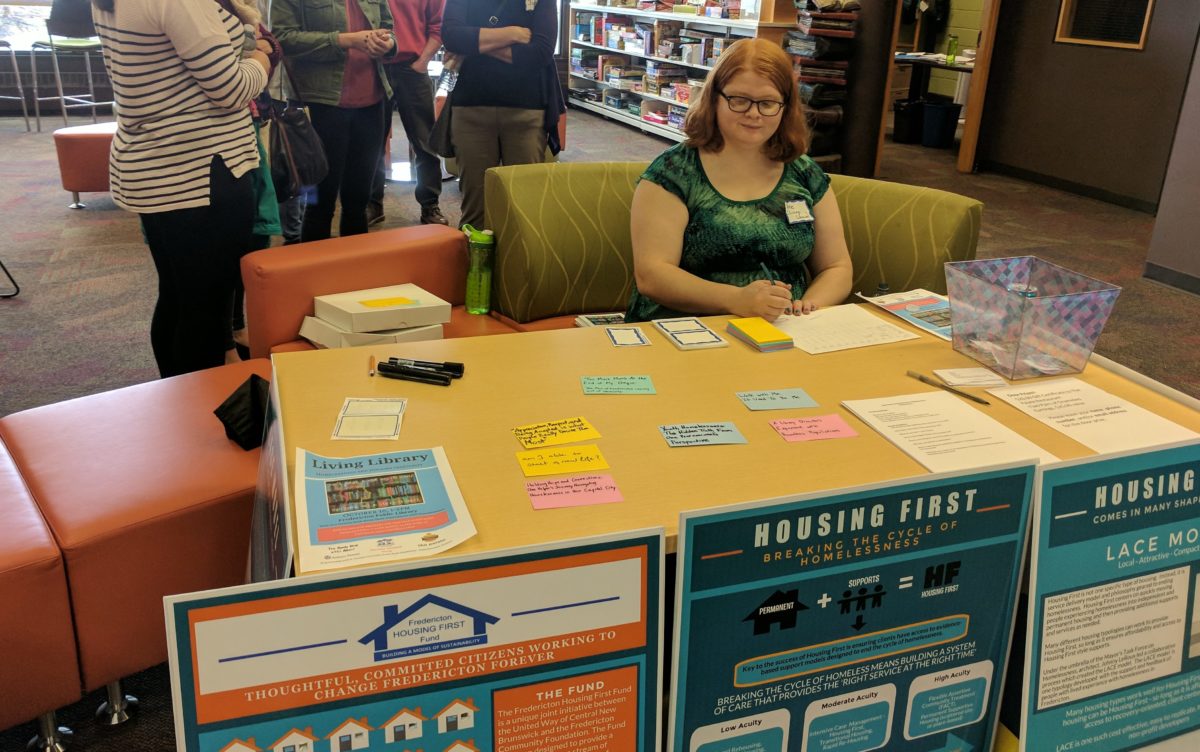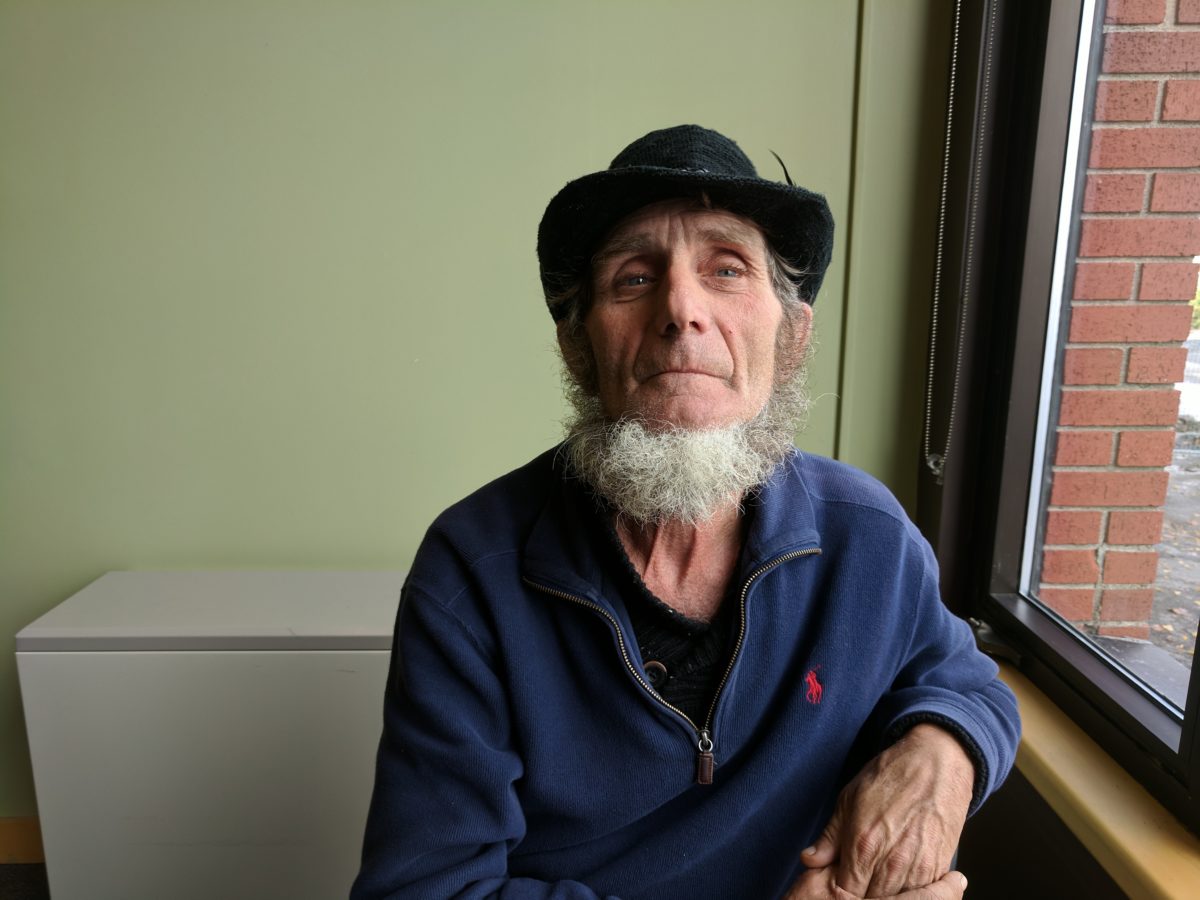Reading a book has been the oldest way to transport yourself into another world, into another person’s shoes. But what happens when your book is a human being standing in front of you?
That was the idea behind the living library, an event where attendees could “check out” a human book for a conversation and learn that person’s story. It’s an idea being used to break down stereotypes surrounding minority groups.
A living library on homelessness
The Community Action Group on Homelessness, a collection of non-profit organizations and government representatives working to address the challenges of Fredericton’s homeless population, hosted its first living library on Oct. 10 at the Fredericton Public Library. The event was organized in part by Megan MacLeod and Vee Sturgeon, two St. Thomas University social work practicum students doing.
MacLeod said she hopes this event can build connections within the community and start a conversation about homelessness and housing insecurity in Fredericton.
“When we hear stories form people who have actually experienced it firsthand, in my opinion, I’m more likely to reflect on it, think about it and have a stronger emotional attachment to that because I’m hearing what a real-life person who’s right in front of me has experienced,” she said.

Books each have their own index card with their title written on the front. “Readers” come and pick a book based on the title and are then paired up for 20-minute conversations with their “book.”
With titles like Am I able to start a new life? and Youth Homelessness: The Hidden Truth from One Professional’s perspective, the books ranged from people who have experienced homelessness and the professionals working to help them.
The music man without a home
Mike Kennedy has been homeless for four months following separation from his wife. He just received his final divorce papers on Oct. 8.
His book is titled Too Much Month at the End of My Cheque: The face of homelessness coming out of obscurity.
At just 60-years-old, Kennedy looks more worn than one might expect. His craggy face is weathered with lines. A grizzly grey beard sits like a cloud around his chin and the sides of his face, kind of like Abe Lincoln. He wears a corduroy hat with a feather tucked in the brim. He makes his living by panhandling, but relies on services like the soup kitchen for food. The money he makes panhandling goes towards producing his music.
“I am a real multifaceted individual. My life is not a waste. I have the gift of music in me, I write songs, I have two CDs out,” he said.
Kennedy said he wanted to participate as a book in the living library to bring awareness to the struggles homeless people face.
“[People] should know that when they close the door at night, and when they put a stick in the fireplace and when their dog lays down by the fire, they need to know that there’s a human being laying over there somewhere in a ditch, cold,” he said, his voice cracking slightly.


“They need to know that that human being needs warmth too. I don’t know how we ever became a society that thinks more of animals than we do of human beings.”
This will be Kennedy’s first winter without a home. He’s currently couch surfing as the temperatures drop, and hopes to be placed in subsidized housing before the winter comes.
Despite his hardships, Kennedy still looks forward to new phases in his life and his music. He has a catalog of children’s songs he’s written waiting to be produced.
“When people are finally able to hear my children’s songs, they are going to be able to hear a music that is untouched by any influence of man, the world or anything. That’s what children need, children need the simplicity, the sincerity, the truthfulness of it.”
Kennedy said the most important takeaway for people looking to learn about homelessness or to help someone is that their help is consistent and they don’t judge people.
“You want to start helping people when there’s more than enough cheque,” he said.
Kennedy believes one of society’s problems is “neutral help” — when you could provide aid to someone but choose not to. He said showing off material wealth shouldn’t be more important than helping people.
“What I would like to say to society is that I’ve never seen a hearse hauling a U-Haul trailer.”
The other side of housing insecurity
Chahinez Abdelmoumene shared stories of a hidden housing issue in Fredericton with her book Am I able to start a new life?
The 36-year-old Algerian native moved to Fredericton from Belgium four years ago with her husband. Abdelmoumene works with the Multicultural Association, helping newcomers and refugees find permanent housing.
She said the city looking for immigrants to grow the province’s dwindling population has a big problem: not enough housing options for larger families.
“People in Canada are used to having small families, people looking for one-bedroom, two-bedroom, and maximum, maximum three-bedroom,” she said.
Abdelmoumene said newcomer families usually range from five to eight people, sometimes 10. She said there are almost no options for families of those size within the city, and if there are, landlords sometimes say a family of eight is too many for a four-bedroom house.
“The other thing is they ask for references, but the people have just arrived, so they don’t have references,” she added.
Lack of transportation means housing outside the city isn’t accessible. Newcomers often don’t have cars and the public transportation is inadequate.
Abdelmoumene recalls a family of nine who arrived in June. They found a house after a month, at a very steep rent, but had to take it because there were no other options.
Without a home address, newcomer families can’t register children at school, get their Medicare card or start English classes.
“You cannot start your life basically, in your new home [country],” Abdelmoumene said.
Some families have arrived in Fredericton only to leave for a new city or province when they can’t find adequate homes.
“In order to receive people and keep them in the city, we need at least to have options for them for housing in the city. It’s very important, if they don’t have a good place to live they won’t stay.”

